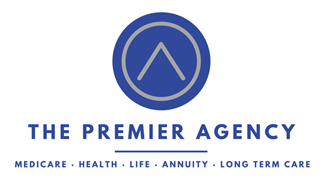Are you a dual special needs broker in Arizona facing challenges in your practice? This article addresses common obstacles you may encounter, focusing on regulatory compliance, client communication, and operational hurdles. We’ll explore practical strategies to navigate Arizona’s unique market, build trust with dual-eligible clients, and access professional development resources. By the end, you’ll have actionable insights to enhance your practice and better serve your clients, all while managing risks and staying within budget.
Key Takeaways
- Arizona’s dual special needs market presents unique challenges for brokers, including complex regulations and diverse client needs
- Effective communication and trust-building are crucial for serving dual-eligible clients in Arizona
- Brokers must stay informed about policy changes and leverage technology to improve service delivery
- Streamlining administrative processes and managing resources efficiently can enhance broker effectiveness
- Ongoing training and networking are essential for brokers to navigate the complexities of dual-eligible healthcare
Understanding the Unique Challenges in Arizona’s Dual Special Needs Market

Arizona’s dual special needs market presents unique challenges for brokers. The state’s dual-eligible population, specific policies, and competitive landscape shape the industry. Understanding these factors is crucial for brokers navigating Medicare and emergency department usage. Effective data collection and awareness of unemployment trends also play key roles in overcoming obstacles in this specialized field.
Overview of Arizona’s Dual Eligible Population
Arizona’s dual special needs eligible population presents unique challenges for brokers in the state’s special needs market. Health equity remains a key concern as experts strive to develop effective methodologies for data sharing and incentive programs. The diverse demographic makeup of dual special needs individuals requires brokers to possess specialized knowledge and adaptable strategies to address their complex healthcare needs.
State-Specific Policies Affecting Brokers
Arizona’s state-specific policies significantly impact dual special needs brokers. The state’s approach to Medicare Part D subsidies and chronic obstructive pulmonary disease management affects how brokers operate. These policies influence lead-generation strategies and shape the overall landscape for brokers serving dual-eligible clients in Arizona.
Navigating the Competitive Landscape in Arizona
Navigating Arizona’s competitive dual special needs market requires brokers to leverage telehealth solutions and stay informed about physician laws. Investment in technology and information systems is crucial for success. Brokers must adapt to the evolving landscape by:
- Embracing telehealth platforms
- Understanding state-specific physician regulations
- Investing in robust information management systems
- Staying updated on market trends and competitor strategies
Navigating Regulatory and Compliance Hurdles

Dual special needs brokers in Arizona face complex regulatory and compliance challenges. These include staying current with Medicaid and Medicare changes, meeting state licensing requirements, and following marketing and enrollment guidelines. Brokers must navigate these hurdles while addressing poverty issues, managing rebates, and working with entities like the National Committee for Quality Assurance. Understanding how to enable proper care and nursing services is crucial in this field.
Keeping Up With Medicaid and Medicare Changes
Dual special needs brokers in Arizona must stay vigilant about Medicaid and Medicare changes to ensure compliance and provide optimal service. These brokers need to monitor updates in Medicare Advantage plans, focusing on transparency and measurement criteria set by health authorities. Leadership in this field requires a commitment to ongoing education and adapting to evolving regulations that impact dual-eligible beneficiaries.
Meeting Arizona Licensing Requirements
Arizona’s licensing requirements for dual special needs brokers include specific protocols for addressing homelessness and conducting interviews. Brokers must complete a pdf-based application process and maintain a certain percentage of clients from underserved populations. Arizona’s unique regulatory landscape demands tailored approaches to licensing and compliance.
Adhering to Marketing and Enrollment Guidelines
Dual special needs brokers in Arizona must adhere to strict marketing and enrollment guidelines for Medicare Advantage and Medicaid programs. These guidelines, influenced by the Affordable Care Act, aim to ensure fair practices and protect vulnerable populations. Brokers must navigate the complexities of managed care systems while considering cost factors for clients. Compliance with these guidelines is crucial for maintaining licensure and providing ethical service to dual-eligible individuals:
Bridging Communication Gaps With Clients

Dual special needs brokers in Arizona face communication challenges with clients. Overcoming language and literacy barriers is crucial for effective Medicare Advantage marketing. Simplifying complex health plan information helps clients with chronic conditions. Selecting effective communication channels builds capacity and attention. These strategies improve client understanding and engagement.
Overcoming Language and Literacy Barriers
Dual special needs brokers mostly face language and literacy barriers when communicating with clients about health insurance and exams. They must adapt their approach to explain complex topics like activities of daily living and payment options. Brokers often use visual aids and simplified language to overcome these obstacles, ensuring clients understand their coverage and responsibilities.
Here are the common communication challenges and their solutions:
Simplifying Complex Health Plan Information
Brokers must simplify complex health plan information to effectively advocate for their clients. They conduct thorough risk assessments to determine the most suitable plans that align with clients’ income levels and quality of life goals. By breaking down intricate regulations into digestible formats, brokers help clients make informed decisions about their healthcare coverage, ensuring they understand the benefits and limitations of each option.
Selecting Effective Communication Channels
Dual special needs brokers in Arizona must carefully select effective communication channels to reach their clients. They should analyze data from hospital readmission rates and the federal register to identify trends in healthcare utilization. This data analysis helps brokers determine the most appropriate methods for contacting clients, whether through phone calls, emails, or in-person meetings. By tailoring their communication strategies based on client preferences and needs, brokers can improve engagement and reduce misunderstandings about complex health care information.
Building Trust With Dual-Eligible Clients

Building trust with dual-eligible clients is crucial for Arizona’s special needs brokers. This section explores understanding cultural and social factors, providing personalized guidance, and establishing long-term relationships. By addressing these aspects, brokers can effectively support patients, caregivers, and those in nursing homes. Technology and partnerships with providers like Humana are key in this trust-building process.
Understanding Cultural and Social Factors
Brokers must understand the cultural and social factors influencing their clients’ healthcare decisions. These brokers utilize CMS data warehouses to gain insights into chronic care management trends among diverse populations. By analyzing FIDE (Fully Integrated Dual Eligible) program data, brokers can better navigate the complex landscape of dual-eligible healthcare needs. This knowledge enables them to tailor their approach, addressing cultural sensitivities and social determinants of health that impact client trust and engagement.
Providing Personalized Guidance and Support
Dual special needs brokers in Arizona provide personalized guidance and support to build trust with their clients. They navigate the complexities of Medicaid managed care and Medicare, offering tailored advice based on each consumer’s unique situation. Brokers use https-secured platforms to protect client information while improving health literacy. This approach helps clients in the United States make informed decisions about their dual-eligible benefits.
Establishing Long-Term Relationships
Dual special needs brokers must establish long-term relationships with clients by staying informed about relevant legislation and health policy changes. They conduct regular evaluations of client needs, using resources to enhance their knowledge. This ongoing commitment to understanding and addressing client concerns builds trust and ensures brokers provide accurate, up-to-date guidance on complex dual-eligible programs.
Overcoming Operational Obstacles

Dual special needs brokers in Arizona face operational challenges that impact their efficiency and client service. Streamlining administrative processes, managing time and resources, and adopting technology are crucial strategies to overcome these obstacles. By addressing these areas, brokers can improve their ability to conduct health risk assessments, manage insurance details, and support beneficiaries with conditions like heart failure.
Streamlining Administrative Processes
These professionals can streamline administrative processes by implementing efficient management systems. These systems help brokers define clear workflows, track return on investment, and manage client information effectively. By collaborating with nurse practitioners and community resources, brokers can create a comprehensive support network that enhances their operational efficiency and improves client care.
Managing Time and Resources Efficiently
Dual special needs brokers in Arizona can manage time and resources efficiently by prioritizing tasks and leveraging available tools. They can consult the Medicare Payment Advisory Commission reports to stay informed about reimbursement changes and use Social Security Act guidelines to streamline client assessments. By focusing on dignity in client interactions and learning from successful practices in states like New Hampshire, brokers can improve their finance management and overall operational efficiency.
Adopting Technology for Improved Service Delivery
Healthcare insurance industry is adopting technology to improve service delivery and address social determinants of health. They use digital platforms to streamline education about Medicare Advantage plans and medication management. These tools help brokers track client numbers, analyze data, and provide personalized care recommendations. By leveraging technology, brokers can more effectively navigate the complexities of dual-eligible healthcare:
- Implement digital health assessment tools
- Use secure messaging systems for client communication
- Employ data analytics to identify high-risk clients
- Utilize telehealth platforms for remote consultations
- Integrate electronic health records for comprehensive care management
Accessing Support and Professional Development Resources

Dual special needs brokers in Arizona can access support and professional development resources to enhance their services. Engaging in training, networking with peers, and utilizing state resources help brokers improve their skills in disease management, particularly for conditions like diabetes and acute care. These opportunities also aid in understanding disability-related issues and collaborating with organizations like the Association for Community Affiliated Plans.
Engaging in Training and Continuing Education
Professionals can enhance their expertise by engaging in training and continuing education programs. These resources often focus on health maintenance organization policies, disease management, and the latest research in dual-eligible care. Organizations like the Arizona Department of Health Services offer valuable educational opportunities for brokers to stay updated on industry trends and best practices.
Networking With Fellow Brokers in Arizona
Benefit from networking with fellow professionals to share insights on managing clients with hypertension and chronic kidney disease. They discuss strategies for improving healthcare quality and navigating contract negotiations with providers. These networking opportunities also allow brokers to exchange ideas on addressing mental health concerns among dual-eligible clients, enhancing their ability to provide comprehensive care.
Utilizing State and Community Resources for Brokers
Dual special needs brokers in Arizona can utilize state and community resources to enhance their services. The Arizona Department of Health Services offers guidance on the Code of Federal Regulations, helping brokers navigate complex healthcare policies. Local innovation centers provide support for accounting and stakeholder management, equipping brokers with tools to improve their business operations and client relationships.
Conclusion
Dual special needs brokers in Arizona face unique challenges that require strategic solutions and adaptability. Navigating complex regulatory landscapes, overcoming communication barriers, and building trust with clients are critical aspects of success in this field. By leveraging technology, staying informed about policy changes, and accessing professional development resources, brokers can enhance their service delivery and operational efficiency. Ultimately, the ability to overcome these obstacles not only improves the quality of care for dual-eligible individuals but also contributes to a more effective and compassionate healthcare system in Arizona.


Recent Comments